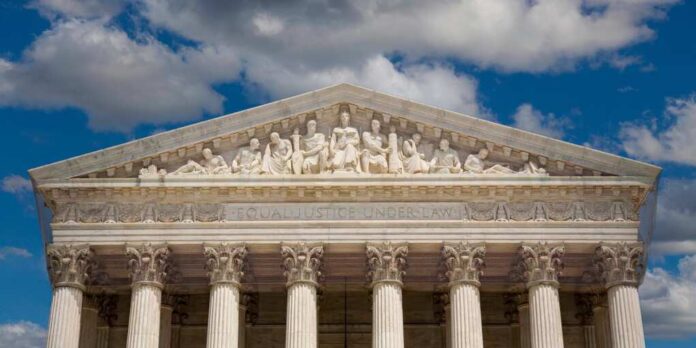President Trump’s Education Department is drawing a hard line on DEI—and now it’s heading straight to the Supreme Court to make it stick. On Wednesday, the administration formally asked the high court to block a lower court order that forced the federal government to resume payouts on canceled diversity, equity, and inclusion-related education grants. These taxpayer-funded grants were aimed at promoting DEI training for teachers—something the Trump administration has made clear has no place in federal education policy.
At the center of this showdown is U.S. District Judge Myong Joun, a Biden appointee who issued a March 10 order blocking Trump’s move to cancel the grants. According to Judge Joun, the Department of Education’s decision to stop millions in DEI funding lacked sufficient legal justification. The administration, on the other hand, argues that it’s exercising its rightful authority to manage federal funds and implement policy—something presidents are elected to do.
“The Administration made a judgment to terminate diversity, equity, and inclusion (DEI)-related grants,” Acting Solicitor General Sarah Harris wrote in the application to the court. “Yet the district court’s order is enabling many of those grantees to request payments on their grants, which grantees now have an incentive to do quickly.” In other words, this judge’s ruling has opened the floodgates, allowing woke organizations to cash in while they still can.
The application didn’t stop there. Harris called out the increasingly aggressive behavior of lower court judges who seem to believe they run the executive branch: “The case is an ideal candidate for the justices to put a swift end to federal district courts’ unconstitutional reign as self-appointed managers of Executive Branch funding and grant-disbursement decisions.” That’s not just a legal critique—it’s a shot across the bow aimed directly at the judicial activists in black robes who think they’re running the country from the bench.
The administration warned that unless the Supreme Court steps in, there will be “no end in sight for district-court fiscal micromanagement.” And they’re absolutely right. This is part of a broader pattern that’s emerged since President Trump’s return to office—activist judges blocking executive actions not because they’re unlawful, but because they don’t like them. That’s not how a constitutional republic works.
Just earlier this month, the Supreme Court declined—over the objections of four justices—to block another ruling that forced the Trump administration to pay out nearly $2 billion in frozen foreign aid. Now, the DEI grants are the latest front in what’s becoming an all-out war over who actually governs this country—the elected President or unelected judges with a political agenda.
Let’s not forget, these DEI programs aren’t just about teaching kindness or promoting fairness. They’ve become Trojan horses for left-wing ideology in schools, embedding race-based thinking and identity politics into every corner of the classroom. They’ve helped normalize radical gender theory, encourage anti-American sentiment, and punish students and teachers who refuse to conform to the new cultural orthodoxy. That’s what Trump is trying to defund—and what the Biden bench is desperately trying to preserve.
Meanwhile, Republican lawmakers in Congress are finally starting to fight back against the real root of the problem: the nationwide injunction. Sen. Josh Hawley and Rep. Darrell Issa have introduced legislation to limit judges from blocking policies across the entire country based on one rogue courtroom. Because right now, a single activist judge in one state can grind an entire national agenda to a halt. That’s not checks and balances. That’s judicial tyranny.
The Trump administration has also asked the Supreme Court to block other lower court orders it views as power grabs—one reinstating thousands of fired federal workers, and another undermining Trump’s birthright citizenship order. This latest case over DEI education grants is just another example of how the activist bench is working overtime to preserve Biden’s progressive legacy by judicial fiat.
But this administration isn’t rolling over. Trump’s message is simple: the courts do not control the federal purse. Bureaucrats and judges don’t get to keep DEI alive behind the scenes after the American people have voted for a president who promised to shut it down. The Constitution is clear—Congress funds, and the executive governs. And if the courts don’t like it, they can take it up with the voters.
The Supreme Court now has a chance to remind the judicial branch where its authority ends. The Trump administration is asking the justices to put the brakes on this out-of-control DEI spending and send a clear message to activist judges across the country: the executive branch is back in charge. And it’s about time.




